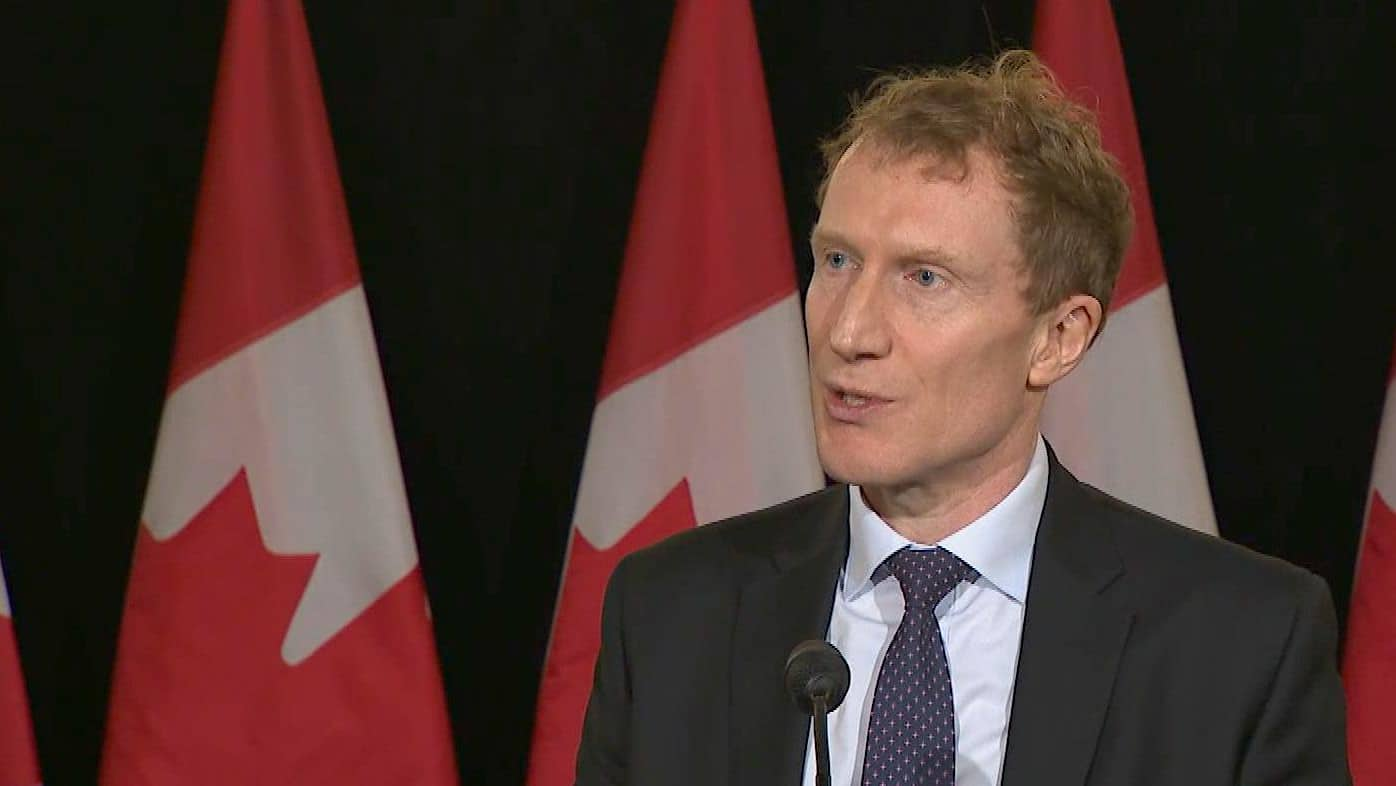Federal government announces 2-year cap on student visas

With a stated goal of targeting institutional “bad actors” — and amid concern about the impact growing numbers of international students are having on the housing market — Immigration Minister Marc Miller announced Monday that the federal government will cap the number of student visas over the next two years.
The government says it will approve approximately 360,000 undergraduate study permits for 2024 — a 35 per cent reduction from 2023.
Each province and territory will be allotted a portion of the total, distributed according to population. The federal government says this will result in “much more significant decreases in provinces where the international student population has seen the most unsustainable growth.”
In some provinces, Miller said, the total reduction in permits will be approximately 50 per cent.
Provinces and territories will be left to decide how permits are distributed among universities and colleges in their jurisdictions. The cap will be in place for two years; the number of visas to be issued in 2025 will be reassessed at the end of this year.
Miller said that by imposing the cap, the federal government is taking action against some small private colleges.
“It’s unacceptable that some private institutions have taken advantage of international students by operating under-resourced campuses, lacking supports for students and charging high tuition fees all the while significantly increasing their intake of international students,” Miller said.
Marc Miller, minister of immigration, refugees and citizenship, outlined Monday how the federal government plans to cap the number of international students in Canada.
In addition to the cap, the federal government will also require international students applying for a permit to provide an attestation letter from a province or territory.
“To be absolutely clear, these measures are not against individual international students,” Miller said. “They are to ensure that as future students arrive in Canada, they receive the quality of education that they signed up for and the hope that they were provided in their home countries.”
Miller also announced changes to the post-graduation work permit program.
Marc Miller, minister of Immigration, Refugees and Citizenship, says the government has two years to ‘get the ship in order’ around international students in Canada.
Starting in September, international students who begin a program that’s part of a curriculum licensing arrangement (one where a private college has been licensed to deliver the curriculum of an associated public college) will no longer be eligible for a post-graduation work permit.
Graduates of master’s and other “short graduate-level programs” will “soon” be able to apply for a three-year work permit, the government says. Open work permits will also be made available to the spouses of international students in master’s and doctoral programs.
The changes announced Monday come a little over a month after Miller first announced measures intended to target what the minister described as “the diploma equivalent of puppy mills.”
“We’ve got two years to actually get the ship in order,” Miller said Monday. “It’s a bit of a mess and it’s time to rein it in.”
Miller suggested the federal government would have preferred for provincial governments to take action — post-secondary education is a provincial responsibility in Canada. And while the new federal rules may be primarily aimed at some private colleges, the changes might also renew concerns about the level of public funding provided by provincial governments to universities and colleges.
But the other concern hanging over Monday’s announcement is the availability of affordable housing.
What will this mean for the housing market?
“This should have happened some time ago,” Mike Moffatt, an assistant professor at the Ivey Business School at Western University, said shortly before Miller’s announcement.
“The provinces should’ve acted first … But it’s good to see the federal government bring back some rationality back to the number of international students.”
Moffatt, also a senior director at the Smart Prosperity Institute, was in Montreal to brief cabinet ministers on a housing panel; he was also invited to address cabinet last fall. He told reporters that the impact of a surge in international students varies across housing markets, but in some cities it is making a “massive difference.”
“On the rental side, you have a lot of low-income renters, all battling each other for a low number of spots,” Moffatt said. “And on the ownership side, what we’re seeing is investors buying large quantities of single-family homes and turning them into student rentals, making it nearly impossible for first-time home buyers to find a place to live.”
Former minister of immigration and current Minister of Housing Sean Fraser says he ‘started exploring the possibility of a cap’ when he was minister but he ‘wanted to give an opportunity to provinces and institutions to actually address the problems.’
Recent polling suggests a marked increase in public concern about the effect of immigration levels on housing.
Speaking later on Monday, Housing Minister Sean Fraser told reporters his primary focus remains increasing the rate of housing construction in Canada, but said he also expects that “some pressure” will be “alleviated” in communities that have been taking in particularly large numbers of students.
Fraser, who preceded Miller as immigration minister, said some of the steps taken by Miller were under consideration when he was in charge of the portfolio. At the time, Fraser said, the federal government was trying to encourage provinces and institutions to act.





